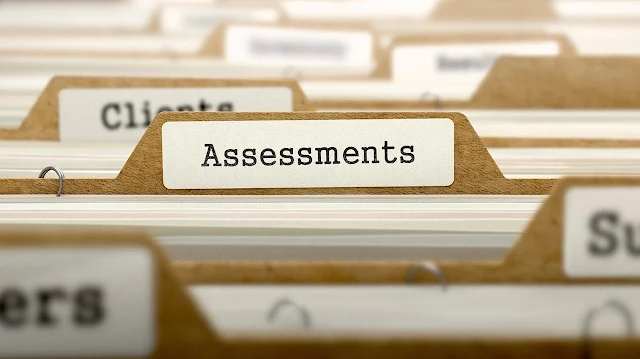Ad Code
Translate
Smart strategies for trading on crypto exchanges
October 20, 2025
Five Do’s For a Healthy Turnover That Bolsters Talent-Retention
October 20, 2025
Discover Honeybee Pharmacy (2025 Guide Important Consumer Tips)
October 14, 2025
What is Ozempic (semaglutide)? (Updated in 2025)
January 30, 2025
Posture Bra: Improving Back Support and Comfort
October 20, 2025
How To Find Suitable Properties In Cyprus?
October 20, 2025
10 Effective Strategies to Improve Domain Authority of Your Website
October 20, 2025
How technology is transforming the assessment process in education
Zizo Gala-Mkhize
February 12, 2024
The assessment process in education is changing a lot, and it's because technology is always getting better. Thanks to the digital revolution, there are now many more tools than paper and pencil that can be used to test students and give teachers more detailed, helpful information about their students' learning.
Teachers are changing the way they give tests a lot because of the times we live in now. This is making learning more flexible, responsive, and personalized. We can improve testing with technology, which will help students do better in school.
Traditional Assessment Methods
Paper essays, tests, and quizzes have all been used to grade work. These ways have been used before but can only do so much. They often take a lot of time for teachers and administrators, cause stress for students, and don't always show what a student knows or can do.
Technology in Assessment
The introduction of technology in the assessment phase of the education process has been game-changing. It offers several advantages. It can streamline the grading system, making it more efficient and accurate.
The rise of personalized learning experiences tailors educational approaches to individual student's needs. It grants students immediate feedback, allowing them to track their progress in real time - a key component of formative assessments that underscores personal growth.
Examples of Technological Assessment Tools
The assessment process has been revolutionized by various tools. The toolkit process includes online quizzes and exams, streamlining distribution, and data collection.
It takes a lot of time to grade papers by hand, but adaptive learning platforms change how hard the material is based on how well the students do on it. Putting simulations and game-like parts in tests has also made them more fun and interactive.
Challenges and Considerations
But some things could be improved with this big move toward learning with technology. Data privacy and security management are needed to keep sensitive student information safe. Also, the most essential thing should be ensuring all students can attend school.
The dependability of tech-based tests is an ongoing problem that needs to be fixed. More people will use these tools if teachers are helped and trained. We can get the most out of these new technologies in the classroom if we help teachers improve their work.
Future Trends in Assessment Technology
A very long time from now, exciting things could happen. Each student can get more out of tests and lessons with the help of AI and machine learning. This will change the way schools work. Virtual reality and augmented reality help students put what they've learned to use in the real world in ways that look and feel natural.
Blockchain tech could also lead to new ways to keep credentials safe. This will help make sure that the grades are accurate and correct. In the years to come, schools will have many chances to grow and change.
Revolutionizing the Assessment Process - Embracing the Future
The assessment process evolves into a more nuanced, dynamic mechanism as we await educational innovation. It steers beyond traditional metrics, becoming an integral pillar for continuous improvement and deeper understanding.
Embracing this evolution ensures that the assessment process remains relevant and effective in nurturing tomorrow's learners. This is not the end but a new beginning for the transformative education journey through technology.
Interested in learning more? Be sure to check out some of our other articles before you go!
Featured Post
DL Mining Launches Ethereum Contract Participation Service, Helping Users Earn $2K Stable Daily Returns
Zizo Gala-Mkhize-
October 20, 2025
Soapie Teasers
Sister Sites
Most Popular
List of 6,000+ Dofollow Commentluv Blogs FREE (Updated 2025)
January 16, 2025
Five Do’s For a Healthy Turnover That Bolsters Talent-Retention
October 20, 2025
What is Ozempic (semaglutide)? (Updated in 2025)
January 30, 2025
Popular posts
List of 6,000+ Dofollow Commentluv Blogs FREE (Updated 2025)
January 16, 2025
Five Do’s For a Healthy Turnover That Bolsters Talent-Retention
October 20, 2025
What is Ozempic (semaglutide)? (Updated in 2025)
January 30, 2025
Footer Menu Widget
Created By Blogspot Theme | Distributed By Gooyaabi Templates


Social Plugin